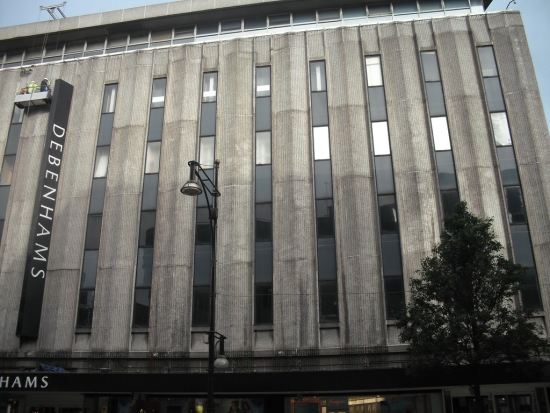In a complex piece of financial engineering, Sports Direct has sold its 4.6 per cent stake in the department store chain Debenhams — just four days after spending £46m to acquire the shares.

The sports retailer — whose controversial boss Mike Ashley is a majority shareholder in Newcastle United football club — has replaced its holding with an option contract which could, potentially, allow it to take a stake of nearly seven per cent in Debenhams.
Known as a “put option”, the high street chain has agreed to sell Sports Direct 6.6 per cent of its shares if the share price drops below an agreed value. The option can be taken up any time between January and March, 2015. Sports Direct has refused to reveal the exercise price agreed, but said its “maximum exposure” under the option deal was about £64m.
“It’s a smarter way to finance the stake. You get a bigger interest, at a reduced rate,” commented one analyst. “Instead of an equity stake, Sports Direct has an option, which it could convert to shares if the wind blows in their direction.”
Mike Ashley immediately let it be known that he still plans to work with Debenhams “in the near future”, despite the fact that his company no longer has a direct equity stake in the store chain. It was assumed after the first buy-in that Sports Direct would use its major shareholder leverage to establish concessions for some of its fashion brands in Debenhams’ outlets.
Doubtless a similar deal has been struck as part of the option deal. As well as having 409 stores in the UK, Sports Direct owns a range of 28 internationally recognised sports, fashion and lifestyle brands including Dunlop, Slazenger, Everlast, Lonsdale, Kangol and Karrimor.
For its part Debenhams, which issued a post-Christmas profits warning swiftly followed by the departure of its finance director, has a top five market share in womenswear and menswear and a top 10 share in the market for children’s wear.
It operates a total of 240 stores across 29 countries, with 156 in the UK. In recent months it has been criticised for excessive discounting, which most analysts feel is damaging its brand.
Sports Direct, which joined the FTSE 100 index of blue-chip companies last September, has set its sights on a greater presence across Europe, where it operates in 19 countries, and still greater expansion.
Over the past two years it has made pre-takeover noises about acquiring House of Fraser and has, in the past, bought stakes in retailers like Blacks Leisure and the now defunct JJB Sports.
Unlike other high-profile companies, Ashley runs his venture more as a portfolio. “It is very much his company, and that is unusual for a high street shop chain,” says Rahul Sharma, from the retail consultancy Neev Capital.
“When Mike Ashley sees something he wants to do, he goes for it. Sports Direct has changed the way consumers shop for sporting goods and the suppliers and brands aren’t always happy about it.”
Previous Post
Protests fail to save Modernist Edinburgh Landmark